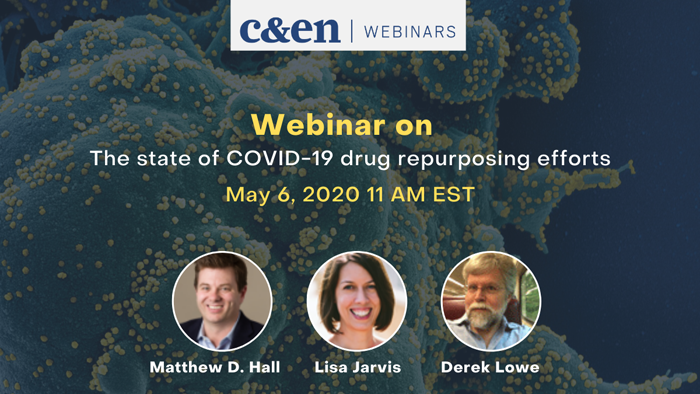Advertisement
Grab your lab coat. Let's get started
Welcome!
Welcome!
Create an account below to get 6 C&EN articles per month, receive newsletters and more - all free.
It seems this is your first time logging in online. Please enter the following information to continue.
As an ACS member you automatically get access to this site. All we need is few more details to create your reading experience.
Not you? Sign in with a different account.
Not you? Sign in with a different account.
ERROR 1
ERROR 1
ERROR 2
ERROR 2
ERROR 2
ERROR 2
ERROR 2
Password and Confirm password must match.
If you have an ACS member number, please enter it here so we can link this account to your membership. (optional)
ERROR 2
ACS values your privacy. By submitting your information, you are gaining access to C&EN and subscribing to our weekly newsletter. We use the information you provide to make your reading experience better, and we will never sell your data to third party members.
Drug Development
Fujifilm tests favipiravir as a COVID-19 treatment
Japanese government plans to buy at least 2 million courses of the influenza drug
by Katsumori Matsuoka, special to C&EN
April 16, 2020
| A version of this story appeared in
Volume 98, Issue 15


Fujifilm is ramping up production of its antiviral treatment favipiravir, one of many approved drugs being tested as a possible treatment for COVID-19. Phase III clinical trials are ongoing in Japan, and the government has ordered 2 million treatment courses. In the US, Fujifilm started Phase II trials earlier this month.
Favipiravir, which Fujifilm sells under the brand name Avigan, has been approved in Japan since 2014 to treat influenza and other viral strains that don’t respond to other drugs. “Avigan tablets are expected to have efficacy against infection with the new coronavirus in view of its characteristic mechanism of action,” says a Fujifilm spokesperson,although the company has yet to present evidence of efficacy.
The Japanese government stated its preference for Avigan to be made in Japan using domestically produced materials. Toyama Chemical, the Fujifilm subsidiary that developed Avigan, will fulfill part of its requirement for a key intermediate, diethyl malonate, from the chemical producer Denka. The firm will restart a plant in Niigata Prefecture that it had closed in 2017 because of global oversupply of the material. The facility was not dismantled and should be able to resume full operations in late May, according to a Denka spokesperson.
In addition, Fujifilm will boost production of intermediates at its Wako Pure Chemical subsidiary and establish partnerships with other raw material suppliers.
Support nonprofit science journalism
C&EN has made this story and all of its coverage of the coronavirus epidemic freely available during the outbreak to keep the public informed. To support us:
Donate Join Subscribe
Fujifilm expects to complete small Phase III trials in Japan, involving 100 people, in June. In the US, Phase II trials with 50 people will be conducted at Brigham and Women’s Hospital, Massachusetts General Hospital, and the University of Massachusetts Medical School. Italy and China launched clinical trials of the antiviral in March.
According to the Fujifilm spokesperson, human trials so far have not uncovered any adverse reactions. The drug has not been tested on pregnant women, however, because preclinical studies indicated possible harm to fetuses.
Like Gilead Sciences’ remdesivir, another antiviral being tested against COVID-19, favipiravir is a selective inhibitor of the RNA polymerase involved in viral replication. Animal studies showed that it’s effective against influenza as well as West Nile virus, yellow fever, foot-and-mouth disease, and other viruses, Fujifilm says.
The firm notes that thus far the Japanese government is the only group that has ordered large quantities of favipiravir to use against COVID-19. The World Health Organization did not include favipiravir among the four existing drugs it is testing against the disease in a multinational trial.
CORRECTION:
This story was originally posted on April 13, 2020. It was updated on April 16, 2020, with additional information about Fujifilm's production plans and to correctly state what the Japanese government ordered. It ordered 2 million Avigan treatment courses, not 2 million tablets.



Join the conversation
Contact the reporter
Submit a Letter to the Editor for publication
Engage with us on Twitter